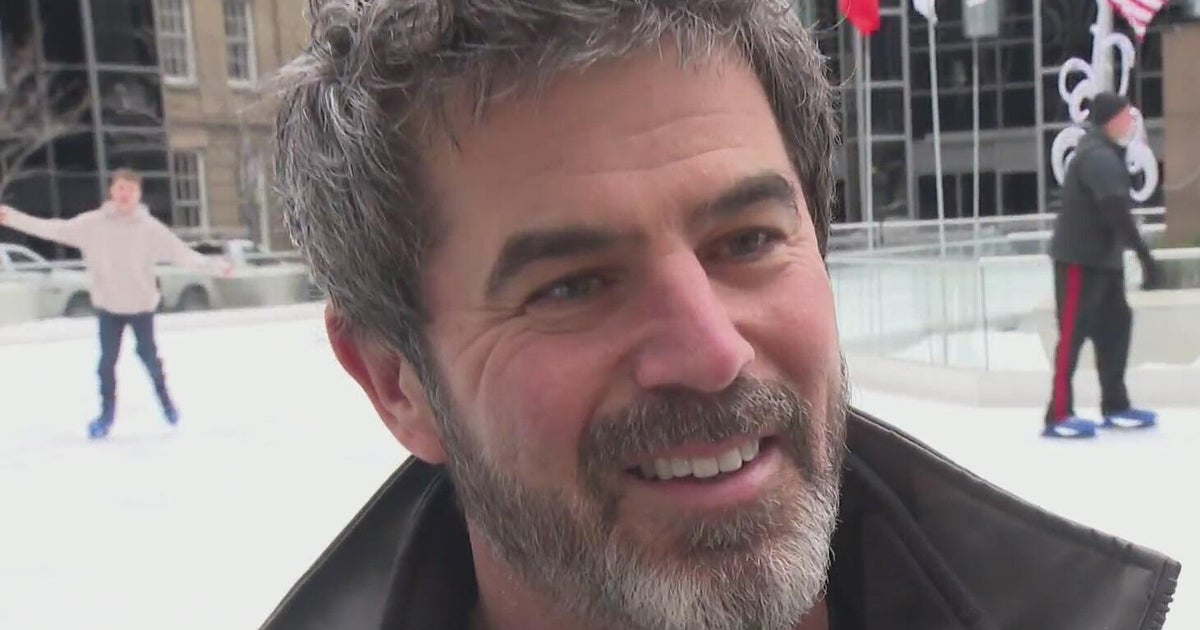Transcript: Mike Morell and William Burns on "Face the Nation," October 20, 2019
The following is a transcript of an interview with Mike Morell and William Burns that aired Sunday, October 20, 2019, on "Face the Nation."
MARGARET BRENNAN: Welcome back to FACE THE NATION. We're now joined by former acting director of the CIA and CBS News senior national security contributor Michael Morrell, as well as career diplomat former Ambassador William Burns who also recently authored a book called The Backchannel. Thanks so much to both of you for being here.
AMBASSADOR WILLIAM BURNS: Great to be with you.
MARGARET BRENNAN: I want to start on the immediate crisis around Syria. Mike, you know the general who clearly knows what's happening on the ground. He was pretty polite in what he said but his frustration in terms of the promises made to the Kurds was clear.
MIKE MORRELL: Right.
MARGARET BRENNAN: How much of a loss to U.S. intelligence is it to have this pullout from northern Syria?
MIKE MORRELL: So the Kurds were during a number of things for us. They were actually fighting ISIS for us in a very significant way and that is now lost. They were also collecting intelligence for us and giving that to us so that we could use it in our fight against ISIS and on the other side of the border in what the Iraqis were doing and I don't know that we've lost that but I bet you either have or it is at significant risk.
MARGARET BRENNAN: And who benefits from that besides ISIS?
MIKE MORRELL: ISIS benefits. The Russians benefit because they're going to be the ones getting that intelligence now. The Syrian- the Syrian regime is going to benefit. But the- the biggest- the biggest winner here is ISIS.
MARGARET BRENNAN: Bill, I mean, you've- you've negotiated with Erdoğan, with a number of these regional players. You know, typically it- it- it's a rule that military presence gives diplomatic leverage when you're in a negotiation. When Vice President Pence went to Turkey this week, he promised to lift U.S. sanctions. He seemed to promise that the U.S. allies would withdraw from this area, as well. Was this a negotiation or was this, as some say, a surrender?
AMB. BURNS: Yeah, I mean, I think there was a smart way and a dumb way to deal with what was a very complicated situation in which we had modest leverage in northeast Syria. I think we chose the dumb way. In one impulsive presidential phone call, we in a sense gave away our leverage. And then in a pretty hasty negotiated cease fire, we threw the Kurds under the bus and essentially gave Erdogan everything he wanted. And so while the president has called this a "great deal," if this is a "great deal," I'd hate to see what a bad one is because the winners, as Mike suggested, are not only the Turks and the Russians but also the Assad regime and the Iranians and I'm afraid ultimately ISIS which is going to try to revive itself out of the chaos and the insecurity and the grievance on which it thrives.
MARGARET BRENNAN: But is this hyperbolic in some ways? I mean, that American influence has diminished because of this one single decision.
MIKE MORRELL: I don't think so at all. So you have all of what Bill said in terms of what happens in the Middle East but there's also the broader message that this sends to the entire world, right? And there's two things. One is that might makes right, right? That you can accomplish with violence differences between countries and that's not something that is in American interest, right, to have that view in the world. The other is that the American word, right, the American guarantees that we provide to people aren't worth anything, right? That at the end of the day is going to strengthen people like China and people like Russia who are going to come in behind us and make promises that they can't keep.
MARGARET BRENNAN: It's always interesting to hear General Thomas say there was an understanding that America had given its word there. Bill, I want to switch to another topic because you know, personally, many of the diplomats who have gone up to Capitol Hill and behind closed doors given testimony about what has happened with Ukraine. You were scathing in an op-ed that you wrote. In terms of Secretary Pompeo, you said was derelict in his duty, not protecting his diplomats. He took a shot at you this morning and said you're just auditioning for a role in the next administration as Elizabeth Warren's Secretary of State. Is that what you're doing?
AMB. BURNS: No. You know, my- my concerns- the concerns I expressed in that article are not about politics. You know like Michael, I spent three and a half decades proudly serving secret- presidents of both parties. My concerns are about the hollowing out of American diplomacy, whether you measure that in tangible ways, the sidelining of career expertise, not standing up for your people when they're unfairly accused, but also intangible ways. You know when President Trump was asked a little more than a year ago whether he was concerned about a record number of senior vacancies in the State Department, he said, "no not really because I'm the only one who matters." That's diplomacy as an exercise in narcissism, not the diplomacy I learned as a young diplomat many years ago working for presidents like George H.W. Bush and secretaries of state like Jim Baker.
MARGARET BRENNAN: But for people on the outside when they hear the president say well this is just deep state bureaucrats being frustrated they're being sidelined. What is important about having done this professionally?
AMB. BURNS: What- what's--
MARGARET BRENNAN: I mean what- what is it that is lost when you have one of the president's friends intervene as you had Rudy Giuliani and Gordon Sondland, who is a political appointee, a financial donor. Many presidents appoint financial donors to ambassadorships.
AMB. BURNS: No, that's true, but I think what we're seeing right now is career public servants, like Ambassador Yovanovitch, who are fulfilling their obligation to tell the truth when they're asked by Congress and they're doing it honorably and they're doing it with their heads held high. That's a pretty sharp contrast to the behavior of the president and people around him who are doing a pretty good job of concealing their own sense of decency right now.
MORRELL: And just to- just to add MARGARET, expertise, knowledge, experience are extraordinarily important to making the right decisions in government and that's what's being lost by not relying on these people.
MARGARET BRENNAN: I mean, the intelligence community has been accused by this president of having its own deep state of just- he was disrupting and they didn't like it and they pushed back, is the president's narrative around this. The attorney general who launched this investigation into the origins of the Russia probe, which concluded definitively that it was Russia that meddled in the 2016 election, seems to be expanding this probe.
MORRELL: Right.
MARGARET BRENNAN: What is the impact of this on the intelligence community?
MORRELL: So, I think that- that Durham investigation at Barr's behest into the intelligence community's work on the link between the Trump campaign and the Russians is okay in one respect and not okay in the other. The respect that it's okay is taking a look at what the intelligence community did and answering the question: was it done by the book from a legal perspective? Was it consistent with statute? That's okay to me. What's not okay is to put the analysts under a spotlight and say, "did they get the analysis right?" Why is that not okay for me? It's a- it's not okay for two reasons. One is that the Justice Department has no experience, no knowledge of, no particular perspective to bring to bear on analysis and they're likely to get the answer wrong because their standards of making a judgment are very, very, very different from the intelligence community standards. And I think there is going to be an effect on analysts who now have to go out and hire lawyers before they sit down with a Department of Justice prosecutor. There's gonna be an effect on analysts in terms of them saying, "do I really want to make the hard call in the future?"
MARGARET BRENNAN: Do you- John Brennan, former head of the CIA, and Jim Clapper, former Director National Intelligence, have- CBS has confirmed that they've been approached for--
MORRELL: Yes. Yes.
MARGARET BRENNAN: --to answer these questions.
MORRELL: Yes.
MARGARET BRENNAN: Are you saying this is all political and not legitimate?
MORRELL: So- so there are questions, right? There are questions out there about whether the intelligence community and the FBI did the right thing, right? From a legal perspective, I think it's OK to look at that and put that issue to rest. I don't like looking at analysis because that's a completely different issue.
MARGARET BRENNAN: Yeah. Last word here. Ambassador, Mike brought up all these people having to go out and hire lawyers and sort of defend their positions. Do you see this as a long term hit to the national security architecture of this country?
AMB. BURNS: It is. I mean I think it's- it's really taking a toll on career public servants and on expertise, as Michael said, at precisely the moment when the United States needs to rely on that expertise whether it's in the intelligence community, the State Department, the Defense Department more than the other time because we're on a very competitive international landscape and we're digging a very deep hole for ourselves right now.
MARGARET BRENNAN: Thanks very much to both of you for lending us your expertise. We'll be right back with our political panel.



